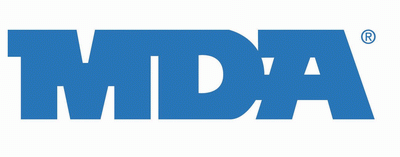The 20th Maine and Little Round Top
Posted: Tuesday, July 05, 2011 by Travis Cody in
On 2 July 1863, the 20th Maine Volunteer Infantry Regiment of the Union Army found itself hastily deployed on the extreme left of the Union line on Little Round Top at Gettysburg. The regiment had no choice but to hold, otherwise the flank would crumple and the rear of the Union position would be vulnerable.
There was nothing to Chamberlain's further left. The last man in the 20th Maine's line was the last man in the Union's line.
The brunt of the first assault on Little Round Top came against the center of the line, where the 16th Michigan only just held against the 4th and 5th Texas regiments, with the help of the 140th New York Zouaves. Colonel Strong Vincent, commander of V Corps of the Army of the Potomac of which the 16th Michigan and 20th Maine were part, was killed as he rallied is forces to hold the center against the Confederates. Colonel Patrick O'Rorke, commander of the Zouaves, was also killed.
The fighting quickly spread out to Chamberlain's regiment. Facing the 15th and 47th Alabama Infantry, commanded by Colonel William C Oates, the 20th Maine withstood charge after charge up the hill. When the center of the line was near to breaking, color sergeant Andrew Tozier, a reluctant replacement from the 2nd Maine, stood fast as a rallying point for D, E, and F companies of the 20th. Tozier was awarded the Medal of Honor for his gallantry, and the regiment held.
But the repeated attacks were folding the line in on itself and it seemed only a matter of time until the defenses must break.
With reports from his squad commanders of low ammunition, Colonel Joshua Chamberlain ordered bayonets and described the way he wanted the left wing of his line to wheel and charge down the hill into the oncoming attackers and flank them. The rest of his line would charge in a frontal assault and attempt to sweep the Confederates from the hill.
Well, that's how history tells us it happened. And that's how the movies show it happening. The facts are less clear than that. We do know that the Union troops did fix bayonets and charge down Little Round Top to overwhelm and finally break the Confederate charge. But it's not exactly certain how the assault developed or who was responsible for getting it moving.
Consider the deafening noise on that hill. Think of the men dying. The screams and moans of the wounded. The shouted requests for more ammunition or for reinforcements. One man shouting "fix bayonets, right wheel, forward" might not be heard.
However it got moving, the Confederates were taken by surprise by the ferocity of the charge. The Union troops won the hill and held the flank. Groups of Confederate prisoners were escorted to the rear by Union soldiers with little or no ammunition.
No matter the man responsible for the charge...whether Colonel Chamberlain, or 1st Lt Holman Melcher...or whether it was more a confluence of circumstance...the fact remains that the heroic charge of the 20th Maine against heavy Confederate opposition saved the Union flank at the Battle of Gettysburg.
Colonel Chamberlain was awarded the Medal of Honor for his bravery in standing fast on Little Round Top. As commander of the regiment, he took the lion's share of credit for the victory. It falls to historians to bring to light the exceptional courage and acts of the men under Chamberlain's command. It is their dedication and sacrifice that ultimately held Little Round Top.
There was nothing to Chamberlain's further left. The last man in the 20th Maine's line was the last man in the Union's line.
The brunt of the first assault on Little Round Top came against the center of the line, where the 16th Michigan only just held against the 4th and 5th Texas regiments, with the help of the 140th New York Zouaves. Colonel Strong Vincent, commander of V Corps of the Army of the Potomac of which the 16th Michigan and 20th Maine were part, was killed as he rallied is forces to hold the center against the Confederates. Colonel Patrick O'Rorke, commander of the Zouaves, was also killed.
The fighting quickly spread out to Chamberlain's regiment. Facing the 15th and 47th Alabama Infantry, commanded by Colonel William C Oates, the 20th Maine withstood charge after charge up the hill. When the center of the line was near to breaking, color sergeant Andrew Tozier, a reluctant replacement from the 2nd Maine, stood fast as a rallying point for D, E, and F companies of the 20th. Tozier was awarded the Medal of Honor for his gallantry, and the regiment held.
But the repeated attacks were folding the line in on itself and it seemed only a matter of time until the defenses must break.
With reports from his squad commanders of low ammunition, Colonel Joshua Chamberlain ordered bayonets and described the way he wanted the left wing of his line to wheel and charge down the hill into the oncoming attackers and flank them. The rest of his line would charge in a frontal assault and attempt to sweep the Confederates from the hill.
Well, that's how history tells us it happened. And that's how the movies show it happening. The facts are less clear than that. We do know that the Union troops did fix bayonets and charge down Little Round Top to overwhelm and finally break the Confederate charge. But it's not exactly certain how the assault developed or who was responsible for getting it moving.
Consider the deafening noise on that hill. Think of the men dying. The screams and moans of the wounded. The shouted requests for more ammunition or for reinforcements. One man shouting "fix bayonets, right wheel, forward" might not be heard.
However it got moving, the Confederates were taken by surprise by the ferocity of the charge. The Union troops won the hill and held the flank. Groups of Confederate prisoners were escorted to the rear by Union soldiers with little or no ammunition.
No matter the man responsible for the charge...whether Colonel Chamberlain, or 1st Lt Holman Melcher...or whether it was more a confluence of circumstance...the fact remains that the heroic charge of the 20th Maine against heavy Confederate opposition saved the Union flank at the Battle of Gettysburg.
Colonel Chamberlain was awarded the Medal of Honor for his bravery in standing fast on Little Round Top. As commander of the regiment, he took the lion's share of credit for the victory. It falls to historians to bring to light the exceptional courage and acts of the men under Chamberlain's command. It is their dedication and sacrifice that ultimately held Little Round Top.



















Where were you when I was in HS? I would have loved to have you as a history teacher. You make it all come alive.